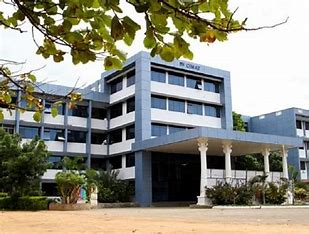MBA Systems Management is a 2-year postgraduate management course that deals with software and information technology problems and administrative issues. The main aim of the MBA Systems Management course is to teach students different subjects that include a detailed review of general management topics and the introduction of technology into business processes. MBA Systems Management graduates have a wide range of job opportunities in the field of management.
The MBA Systems Management course that offers a wide variety of opportunities for students. They can enter an IT corporation or put in the IT or IT management department of an organization. Not only in India but even abroad, there are many opportunities for a system management MBA.
Let's get to know about "why choose an MBA in Systems Management ?" with the aid of three simpler questions.
MBA Systems Management is a two-year postgraduate program that focuses on applying technology to business processes. The essential subjects include management information systems, database management systems, business environment & ethics and operations management. After pursuing an MBA in systems management, aspirants have a great job scope as MBA Systems Management job scope can work in software development projects and IT companies in top-level managerial positions.
Systems managers are responsible for the stable and productive operation of all operating systems, associated applications, hardware, and software used in a wide variety of public and private sector organizations. The systems manager's responsibilities depend on the size of the company and how much technology they use daily. In smaller environments, systems managers may provide support as required, whereas larger organizations may need larger IT departments with more hands-on Systems management positions.
Some of the responsibilities of a systems manager include:
Oversee Employees: Systems managers oversee a team of employees, including programmers, analysts, and support experts.
Develop and Maintain: Systems managers consult computer users to define needs and to ensure that facilities fulfil user or project specifications. Systems managers develop and maintain security or integrity and backup procedures; They design maintenance procedures and bring them into service.
Share Ideas: Systems managers also work closely with other technology experts, including system analysts, support specialists, and software developers. Through sharing ideas with top management, suppliers, and colleagues, system managers ensure stable, productive computer-related activities throughout the enterprise.
This s the syllabus for MBA n Systems Management for the first year:
| Semester I | Semester II |
| Management Principles | Business Research |
| Organizational Behavior | Marketing Management |
| Quantitative Techniques | Information Technology and Systems |
| Managerial Economics | Indian Business Environment |
| Business Communication | Research Methodology for Decision Making |
| Operations Management | Human Resource Management |
| Financial and Management Accounting | Management Information System |
This is the syllabus for MBA n Systems Management for the second year:
| Semester III | Semester IV |
| Office Automation | Entrepreneurship and small industry |
| Internet Programming and Web Design | Strategic management |
| Multimedia Applications | Enterprise resource planning |
| System Analysis and Design | IT for corporate communications |
| E-Commerce | International Business Environment |
| Database Management System | Management Control Systems |
| Business Laws | Software Engineering |

Student Review About Course